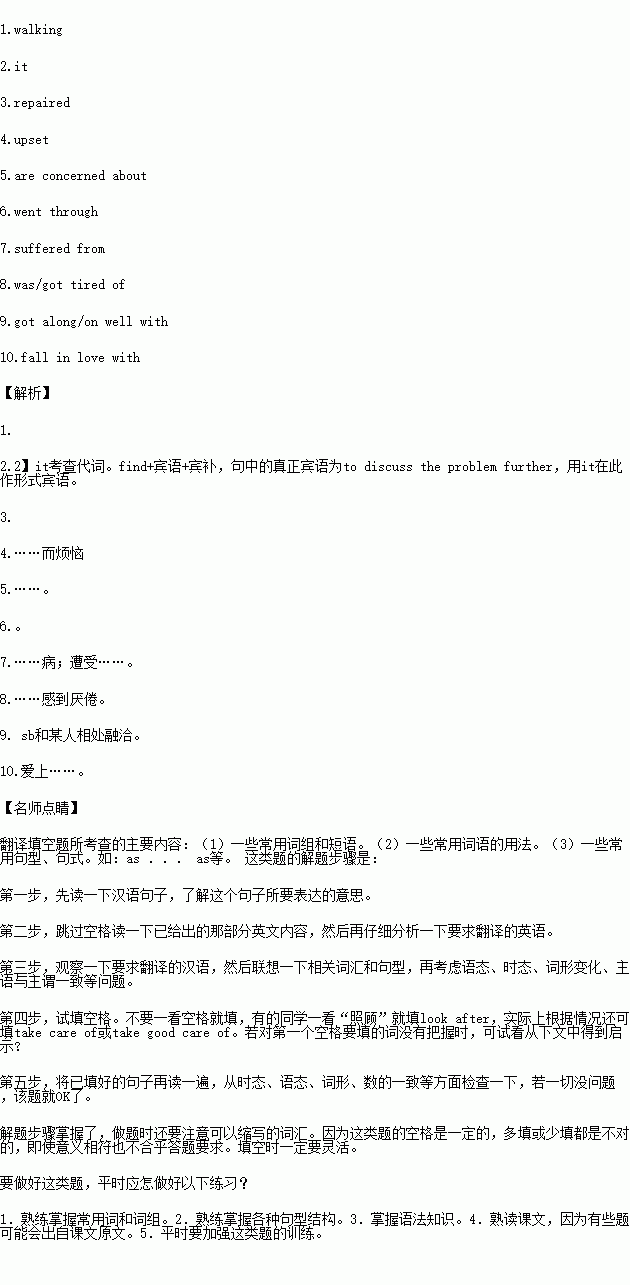题目内容
1.在遛狗的时候,你不慎松开了,结果狗被汽车撞了。
While __________ the dog, you were careless and it got loose and was hit by a car.
2.我发现有必要进一步讨论这个问题。
I find __________ necessary to discuss the problem further.
3.如果相机再坏了,就得他出钱修了。
If the camera is broken again, he will have to pay to get it __________.
4.她为考试不及格而烦恼/忐忑。
She was __________ about her failure in the exam.
5.告诉你朋友你很担心她,下课后你就去和她谈。
Tell your friend that you __________ __________ __________ her and you’ll talk with her after class.
6.他爷爷在战争中受了很多苦。
His grandfather __________ __________ a lot of hardships during the war.
7.不久前的一天他患了很严重的流感。
He __________ __________ a bad flu the other day.
8.他厌倦了城市生活,希望迁居乡村。
He __________ __________ __________ the urban life and hoped to move to the country.
9.我学习努力,与老师同学相处融洽。
I worked hard and __________ __________ __________ __________ my teachers and classmates.
10.成功的第一要素就是热爱你的工作。
To be successful, the first thing to do is to __________ __________ __________ __________ your work.

